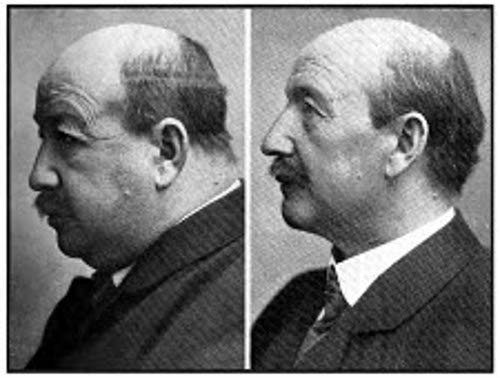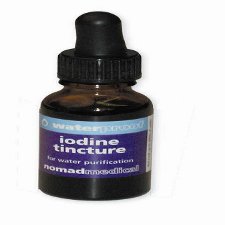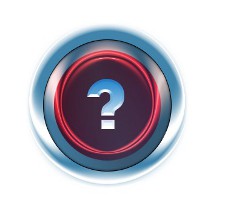 Iodine is an essential mineral necessary for the body to function properly. Together with amino acids, the thyroid gland produces thyroxine, an essential component that regulates the metabolism. Weight gain is just one of the symptoms of hypothyroidism, also known as underactive thyroid.
Iodine is an essential mineral necessary for the body to function properly. Together with amino acids, the thyroid gland produces thyroxine, an essential component that regulates the metabolism. Weight gain is just one of the symptoms of hypothyroidism, also known as underactive thyroid.
Hypothyroidism might be something you suffer from without being aware of it, so read on to discover the symptoms as well as some natural ways to help the body heal itself of the condition.
Why Is Iodine Necessary in the Body?
 To stay at a regular weight, it is important to know if your thyroid gland is functioning effectively. A well-maintained thyroid gland regulates the metabolic rate, and will burn calories sufficiently during weight loss, daily activities, and through exercise.
To stay at a regular weight, it is important to know if your thyroid gland is functioning effectively. A well-maintained thyroid gland regulates the metabolic rate, and will burn calories sufficiently during weight loss, daily activities, and through exercise.
Iodine regulates the metabolic rate, together with amino acids. Natural thyroid hormones are released to control the metabolism and other functions maintained in the body. An insufficient supply of iodine can cause a goiter (swollen gland), and even stubborn weight gain.
Iodine does not need to be taken in high doses either. Iodine is contained in salt, fish, seaweed or sushi, and dairy products. Bear in mind, if you eat cabbage, turnips, peanuts, or soybeans, it’s important to take an iodine supplement like kelp. These foods contain goitrogens, which makes the body work harder to process iodine.
How Much Iodine Is Necessary to Regulate the Thyroid Gland?
 Men require 150 mg of Iodine
Men require 150 mg of Iodine- Women require 120 mg of iodine (150 mg with pregnancy, and 170 mg with lactation)
- Children require 70-150 mg of iodine
- Infants require 50-60 mg of iodine
One tablespoon of iodized salt contains 150 mg of iodine. Sixty mg of iodine is provided through 100 g of seafood; 100 mg of breads, cereals or dairy products contains 10 mg of iodine; and 100 g of green leafy vegetables, or meat or eggs contains 25 mg per serving.
You want to be careful not to overdose on iodine. This could cause a goiter and/or hyperthyroidism. However, it is possible to take up to 300 mg of iodine per day without complications occurring. Pregnant women should also keep an eye on their iodine intake. If the dose is not high enough through the diet or supplementation, birth defects may occur.
Symptoms of Hypothyroidism
 Millions of people worldwide suffer from hypothyroidism, yet they may not realize they have a problem. Approximately 10% of women suffer from a thyroid hormone deficiency without the knowledge.
Millions of people worldwide suffer from hypothyroidism, yet they may not realize they have a problem. Approximately 10% of women suffer from a thyroid hormone deficiency without the knowledge.
- Hair loss or coarse, dry hair
- A feeling of weakness and/or fatigue
- Weight gain, or a struggle to lose weight, even when following a calorie controlled diet
- Rough and/or dry pale skin
- Being unable to tolerate cold temperatures
- Depression
- Loss of memory
- A decrease in libido
- Irritability
- Frequent muscle aches and cramps
- Irregular menstrual cycle
- Constipation
If you suffer from any of these symptoms, consult your physician for thyroid testing. The most widely prescribed medication for hypothyroidism is levothyroxine (brand name Synthroid), a synthetic form of the hormone T4. However, there are certain foods, minerals, and other medications that affect the absorption of T4, including iron, calcium, psychotropic medications, and coffee.
Hypothyroidism can be caused by Hashimoto’s Disease (autoimmune disease), thyroidectomy (thyroid removal), congenital defects, or radioactive iodine treatment.
Ways to Treat Hypothyroidism Naturally
 If your first choice is to treat the body naturally, rather than turn to long-term medications for your hypothyroidism, here are nine options for healing:
If your first choice is to treat the body naturally, rather than turn to long-term medications for your hypothyroidism, here are nine options for healing:
- Exercise. Weight gain can be caused by hypothyroidism, so it makes sense to take up exercise to improve the blood flow through the body. Yoga is particularly effective.
- Sun. You do not need to sit out in the sun for too long to up your dose of vitamin D, but 15 minutes per day is recommended on bare skin. Good levels of this essential vitamin boost immune health and the metabolism of calcium. It can also be taken in supplement form.
- Alternative treatments such as acupuncture, osteopathy, homeopathic remedies, and naturopathy can help to treat hypothyroidism without medication.
- Top off your levels of iodine with kelp and spirulina, both good sources of this essential vitamin for thyroid health.
- Switch to a fluoride-free toothpaste and mouthwash. Fluoride can affect iodine absorption.
- Reduce stimulants (e.g. nicotine, coffee, and alcohol) as they could cause an imbalance in the glandular system.
- Increase your intake of foods high in Vitamin B, and consume whole grain foods, plus plenty of fruits and vegetables.
- Deal with emotions that can cause stress-related diseases with meditation and deep breathing exercises. Music could also help to calm the mind.
- Do a full body detox a couple of times per year to reduce impurities. Juice fasting is a gentle and effective way to detox.
Supplements to Treat Hypothyroidism
Kelp and spirulina are great sources of iodine. They are available as sushi or seaweed, as well as in powder or supplement form. These salty foods are a natural source of iodine. Both kelp and spirulina are sea vegetables.
As well as treating hypothyroidism, and boosting the metabolic rate, kelp also contains carotenoids, potassium, magnesium, iron, calcium, and essential fatty acids, to name just a few.
Spirulina contains an abundant level of nutrients, including B12 (cobalamin – stored in the liver, which is essential for enhancing DNA production and red blood cells), carotenoids, vitamins, and proteins.
A possible side effect of a high dose of iodine is excess perspiration due to a heightened metabolism. If dosage is prolonged, it could cause hyperthyroidism (overactive thyroid gland).
Taking a kelp or spirulina supplement could also cause diarrhea. If this occurs, either lower your dose or stop taking the supplement altogether. Make sure that you take kelp and/or spirulina supplements under the supervision of your health care provider.
Take Control
As I mentioned above, it’s best to consult with you physician if you suspect you suffer from hypothyroidism, but making the healthy diet and lifestyle changes recommended here can definitely help. In some cases medications will be prescribed, but quite often a combination of diet and exercise and make a significant difference.